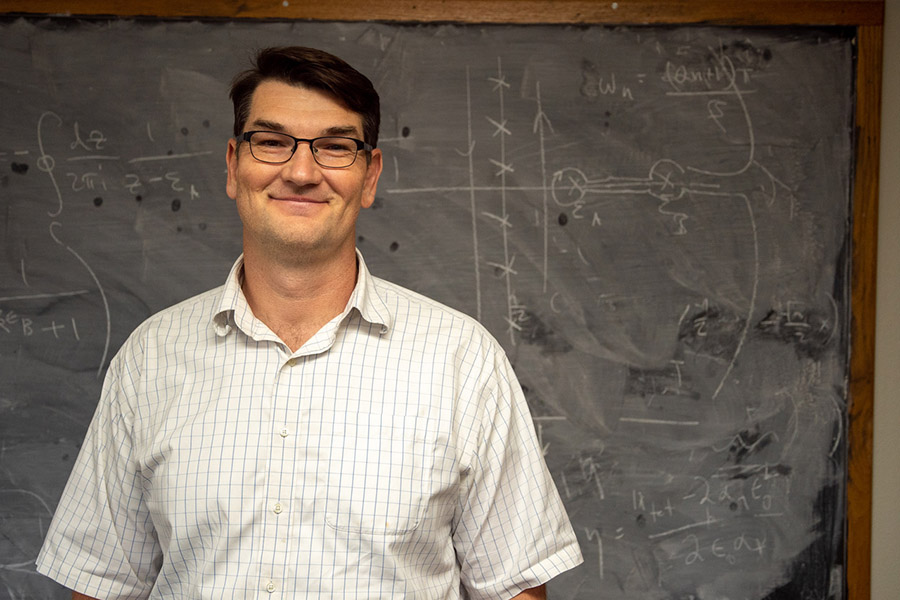Florida State physicist elected American Physical Society Fellow

A Florida State University physicist and researcher at the FSU-headquartered National High Magnetic Field Laboratory has been elected a Fellow of the American Physical Society.
Professor of Physics Oskar Vafek was recognized by APS for his work in correlated electron physics, which explores how a collection of particles, or a material system such as graphene, is more than a sum of its individual parts and can exhibit complex, novel behavior because of interactions within the system.
“I was honored when I found out I had been elected a fellow, just absolutely honored,” Vafek said. “I’m a theorist, which means I determine mathematical models and theoretical explanations of the experimental observations and data collected by my experimental physicist colleagues.”
The APS Fellowship Program, created in 1921, recognizes physicists who have contributed to advances in physics through original research, innovative applications, teaching and leadership. Each year, no more than one half of one percent of APS members are nominated by peers for election to the status of fellow. FSU is home to nearly 50 APS fellows, including Vafek, attesting to the quality of research conducted by the Department of Physics.
“It is a pleasure to congratulate Oskar on his election as a fellow to the American Physical Society,” said College of Arts and Sciences Dean Sam Huckaba. “He has contributed mightily to our overall academic and research missions and now joins a select group of scholars.”
Vafek earned a doctorate at Johns Hopkins University and conducted postdoctoral research at Stanford University’s Institute for Theoretical Physics before joining FSU’s faculty in 2006. He serves as director of the theoretical condensed matter division at the National MagLab, the largest and highest-powered magnet laboratory in the world, funded by the National Science Foundation and State of Florida to provide researchers access to powerful magnets to answer fundamental questions about materials, new technologies, energy, health and the environment.
“Oskar’s election to the APS is well-deserved and reflective of the importance of the theoretical underpinnings that explain so much of the phenomena we research,” said Greg Boebinger, MagLab director and professor of physics. “His investigations into graphene material systems continue to push the field forward, paving the way for exciting new applications in society.”
Over the past five years, Vafek’s research has focused on graphene, an ultrathin yet strong and flexible material that conducts electricity. Layered sheets of graphene placed at precise angles facilitate superconductivity under the right conditions, and are part of a carbon-based two-dimensional superconductor known as twisted bilayer graphene.
“The phenomenon called ‘magic angle twisted bilayer graphene’ has quickly grown into a big field, and we’re currently investigating the behavior of electrons within this structure to determine why it becomes superconductive and how it behaves in the external magnetic field,” Vafek said.
Though this research is conducted on layers that are only two single atoms thick, the applications can be massive. Once scientists understand the fundamentals behind this phenomenon, steps can be taken to engineer these properties into superconducting structures used for improved information processing, data storage and more.
In addition to his research, Vafek also teaches graduate classes on condensed matter physics and is working with a second-year graduate research assistant on externally funded projects.
“Working with students on research projects is a great opportunity to train the next generation of physicists by tackling open-ended, real-world problems,” he said.
Founded in 1899, the American Physical Society is a nonprofit, international organization composed of more than 50,000 members working to advance and diffuse knowledge of physics through outstanding research journals, scientific meetings, education, outreach, advocacy and international activities. APS members are physicists with careers in academia, national laboratories and industries across the U.S. and around the globe.
